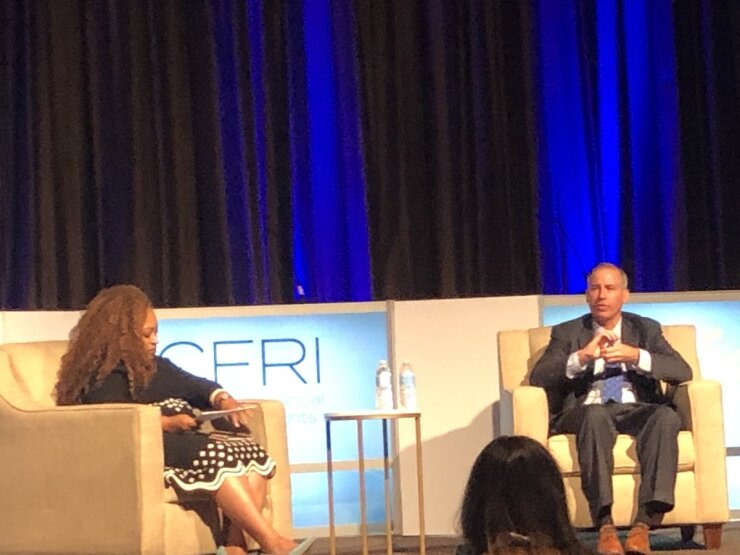The Financial Accounting Standards Board issued an
“The new standard continues our efforts to simplify and improve reporting of share-based payments—in this case, those paid to customers” said FASB Chairman Russell G. Golden in a statement. “The new standard also will give financial statement users a clearer, more consistent picture of these awards.”
The accounting standards update will also affect companies that issue share-based payments (such as options or warrants) to their customers. Similar to issuing a cash rebate to a customer, issuing a share-based payment to a customer can incentivize additional purchases. The share-based payments can also provide a strategic purpose by aligning the interests of a supplier and its customer, because the customer’s additional purchases increase its investment in the supplier.

In June 2018, FASB issued an accounting standards update that expanded the scope of Topic 718, Compensation—Stock Compensation, to include share-based payments to nonemployees in exchange for goods and services. That standards update substantially aligned the accounting for share-based payments to nonemployees and employees. However, it required share-based payments to nonemployee customers to be accounted for under Topic 606, Revenue from Contracts with Customers, as a reduction of revenue, similar to other sales incentives (such as coupons and rebates).
While that accounting update provided guidance on the income statement classification of payments to customers (as a reduction of revenue), that update didn’t specify when to measure such awards or how to classify awards on the balance sheet (for example as a liability or as equity). To address diversity in these areas, the new guidance requires companies to measure and classify (on the balance sheet) share-based payments to customers by applying the guidance in Topic 718.
As a result, the amount recorded as a reduction in revenue would be measured based on the grant-date fair value of the share-based payment.
Measuring and classifying share-based payments to customers under Topic 718 offers a number of improvements, including fewer measurement dates for the instruments, fewer instances of classifying the instruments as liabilities, and more consistent accounting with share-based payments made to other nonemployees.
The new ASU, including its effective dates, is available at www.fasb.org.
During Financial Executives International’s Current Financial Reporting Issues conference in New York on Monday, Golden discussed some of FASB’s upcoming standards.
“When you look at our agenda, there will be a natural pause,” he said. “Right now, we have a number of implementation projects on our agenda, a number of codification improvements that have all come out for the major standards. Companies and auditors are calling and saying we're not sure about this language and we’ve figured out a better way or a clearer way to write it, but it usually does not result in a broad-based significant change. Right now, the major projects that are on our agenda that we think are going to impact every company or a lot of companies with significant change, is liabilities and equity. We're hopeful to begin those discussions before the end of the year. The primary thing we're focused on is there are four or five different ways to account for convertible debt. If there are five different ways, in my view that’s four too many. A lot of smaller companies with less resources have to go through a very detailed discussion so they understand when to bifurcate and how much to bifurcate and then whether or not the warrant you’ve issued for financing is equity or liability. If you get that wrong, you're going to restate for years with a number of restatements. So that's something we'll hopefully work on. There’s goodwill amortization. There is improving the performance reporting. We've been working really hard to see if there is a way in which we can have further disaggregation of costs of goods sold.”
As he nears the end of his term as chairman of FASB next June, he reflected back on his experiences. “One of the difficult things for a board to do is to say no to a standards project,” he said. “We are standard setters, but I did feel that sometimes we were taking on projects because we had an idea in front of us. The board has to set its own agenda, but we used to get a memo that says, here's a problem, here are various alternatives, here's a recommendation, and why don't you go solve it? And so I felt, well, rather than doing those every few weeks, let's bundle them and deal with them every three months, four months, six months. And so we can actually prioritize and think about is this really the most important implementation question that needs to be made? How powerful is this statement by the board to say, yeah, we know there's conflict out there. That conflict is OK. It is OK that not every single question be answered. I'm hopeful that this philosophy will stick. It will be highly dependent upon the acceptance of various judgments, the acceptance of differences when the differences are not meaningful to investors. And that's key.”





